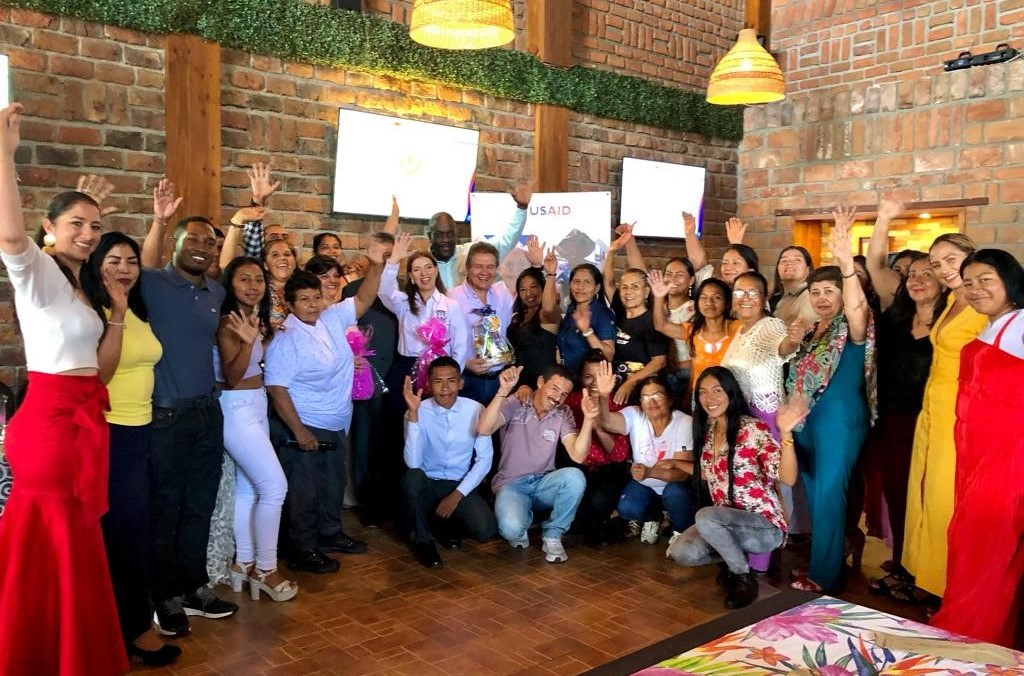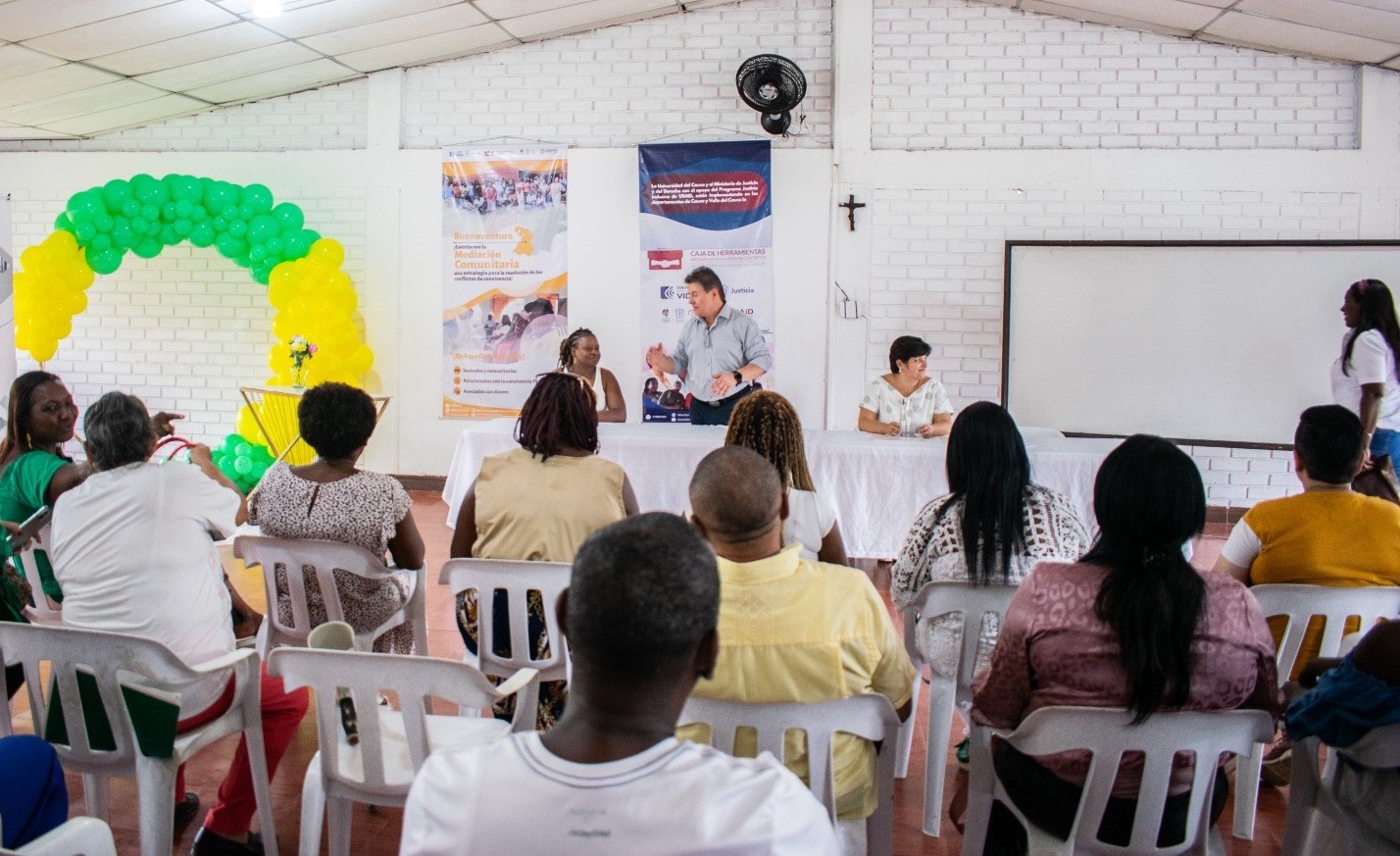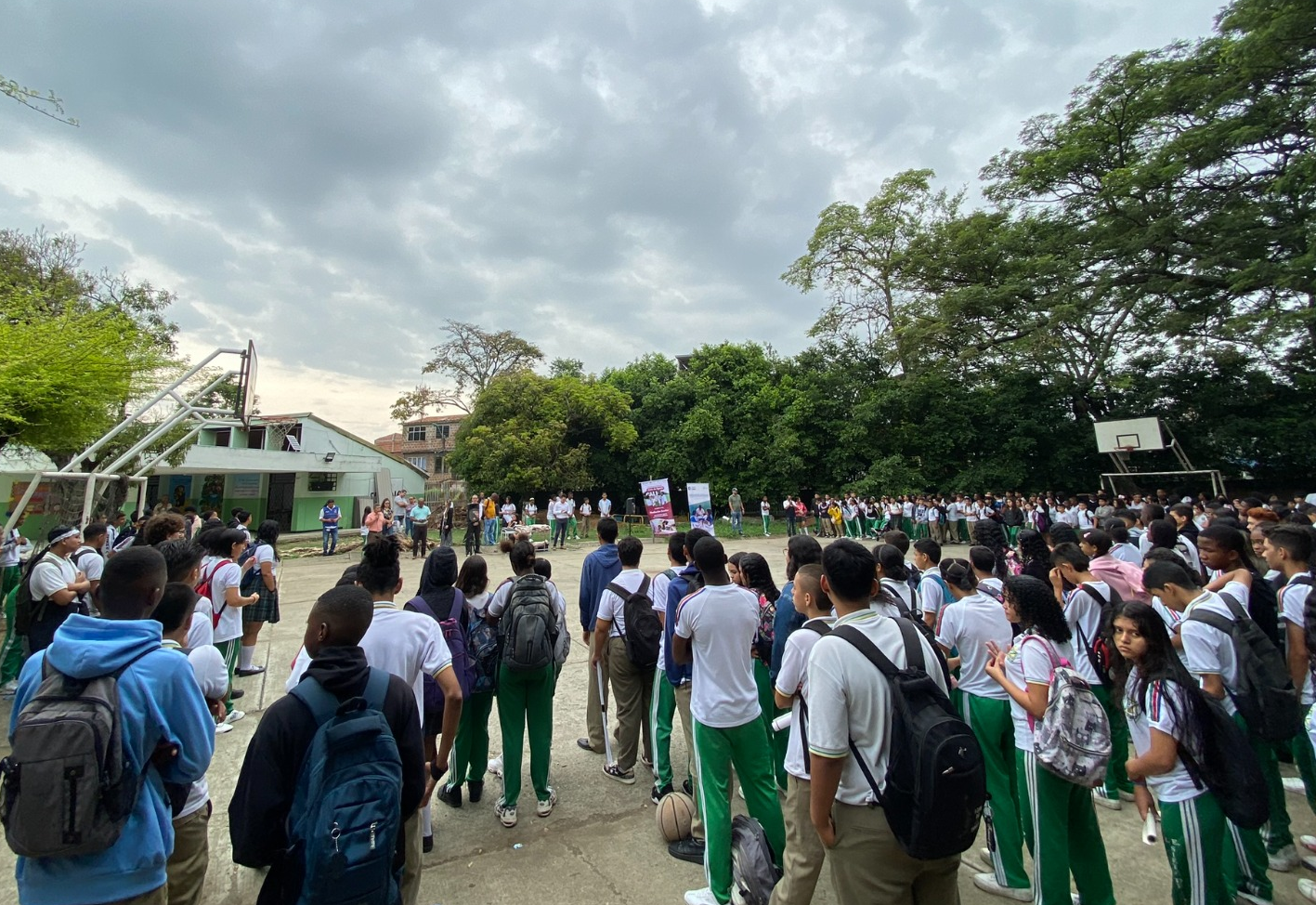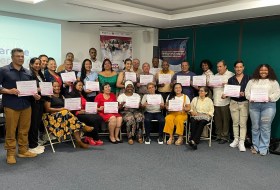News
Through the implementation of conflict resolution methods, Unicauca contributes to peacebuilding in the territories.
In line with its mission to be a University for Peace, the University of Cauca, under the leadership of its Faculty of Law, Political and Social Sciences, and with the support of its Legal Clinic, is implementing the project 'Increasing the supply and use of Conflict Resolution Methods (CRM) in the regions of Valle del Cauca and Cauca, through the co-implementation of the Conflict Resolution Methods Toolbox with the leadership of a Regional Anchor Actor (RAA).'
The University of Cauca, committed to contributing to peacebuilding, has impacted territories through the development of various knowledge transfer projects. Undoubtedly, this center of thought transcends borders with the aim of fostering regional progress, implementing different initiatives in numerous municipalities in the Southwest of the country. After successfully implementing a project within the USAID Sustainable Justice for Peace Program, the University of Cauca applied for a new national call under the USAID Inclusive Justice Program. The goal is to continue implementing the Toolbox, an educational and public policy instrument developed by the Ministry of Justice and Law.
The Toolbox is a highly interesting methodology aimed at promoting the use of Conflict Resolution Methods in municipalities targeted by Territorial Development Programs with a Focus (PDET), specifically in those most affected by armed conflict. Considering the expertise of our researchers, the University of Cauca was chosen to implement the new agreement titled 'Increasing the supply and use of Conflict Resolution Methods (CRM) in the regions of Valle del Cauca and Cauca, through the co-implementation of the Conflict Resolution Methods Toolbox with the leadership of a Regional Anchor Actor (RAA)'. This initiative is led by the Faculty of Law, Political and Social Sciences, and primarily by the Legal Clinic.

Provided Photo
Due to limited access to justice in PDET municipalities, "USAID and the Ministry of Justice and Law aim to increase the use of Conflict Resolution Methods (CRM) such as community mediation, school mediation, intercultural mediation, equity conciliation, and legal conciliation. These methods bring justice closer to the people, enabling friendly agreements without necessarily going through a judicial process, which incurs high costs, lengthy delays, and further congests the judicial system," mentioned Nelson Freddy Osorio, Technical and Academic Coordinator of the mentioned Agreement.
This agreement began its first phase from February until early November 2023 in the municipalities of Cali and Buenaventura, Valle del Cauca, and in Corinto municipality, Cauca. The second phase, which has already started successfully, will be implemented from November 2023 to mid-September 2024 in Toribío, Caloto, and Guapi municipalities in the Cauca department. The team responsible for executing these phases is divided into two parts: firstly, there are five professionals handling administrative and management tasks, mobilizing across different municipalities to establish initial connections with communities, local governments, and educational institutions where the agreement will be implemented. Secondly, there is the teaching team, mostly affiliated with the Law Program and linked to the Legal Clinic, responsible for guiding classes on Conflict Resolution Mechanisms. "Initially, it involves a participatory module where municipal authorities, local justice committees, and leaders from various organizations in the municipality diagnose conflict issues and are presented with the Toolbox to determine the most relevant CRM to implement within that municipality," explained Professor Nelson.

Provided Photo
So, after diagnosing the conflict issues in the municipality and selecting the CRM, participants acquire theoretical knowledge about CRM, especially regarding their legal framework. Additionally, they receive a substantial number of practical hours to develop their skills and abilities to make dialogue a tool for peace. "Mediators or conciliators trained in this process do not just resolve cases; they help build solutions, create a communication environment where conflicting parties listen to each other, converse, and achieve a solution that resolves the conflict and satisfies both parties," added Osorio.
A notable achievement highlighted from the balance of the first phase of the 2023 agreement is the successful train-the-trainer approach. In municipalities like Buenaventura, 30 school mediators and 38 community mediators were trained. In Cali, 36 school mediators and 30 equity conciliators were trained. The case of Corinto is also noteworthy, where 32 equity conciliators and 39 community mediators were trained, including teachers, students, and parents. The latter (parents) were particularly interested in addressing coexistence issues in schools and actively participated in the training. It's important to mention the 'Mediatones' or 'Conciliation Days,' events where trained CRM practitioners gather to put their learning into practice by mediating numerous cases, moving from theory to action.

Provided Photo
It is important to add that on November 30th, within the framework of establishing the Local Justice Committee in Cali, the University of Cauca, through the team responsible for the Agreement, presented and discussed the progress made in implementing the project in this municipality. Emphasis was placed on continuing, through the aforementioned Local Committee, with the ongoing processes related to School Mediation and Equity Conciliation.
Finally, we conclude this note by expressing gratitude for the commitment of our Unicauca community members, who, like the institution's leadership, have dedicated themselves to peacebuilding and are making a tangible impact through specialized educational processes such as Conflict Resolution training. These efforts contribute to nurturing hope in municipalities still affected by the cruelty of war. Thus, the University of Cauca not only maintains a physical presence in these territories but also connects with and supports local residents through project implementation, serving as a catalyst for transformative processes.
From this University of Excellence and Solidarity, we will continue to strengthen mechanisms that allow us to contribute, leveraging our expertise, to achieve the long-awaited peace. We dream of a better country from this corner of Colombia.
For more information, please contact:
Faculty of Law, Political and Social Sciences
Email: derecho@unicauca.edu.co


